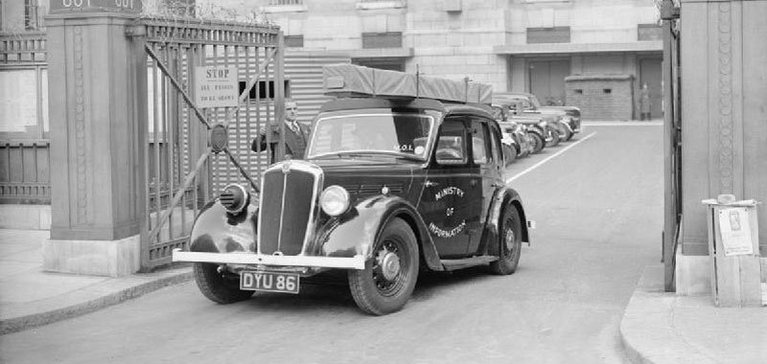A History of the Ministry of Information, 1939-46
MOI Digital
MOI Digital is the online home of ‘A Publishing and Communications History of the Ministry of Information, 1939-46’, a major project funded by Arts and Humanities Research Council between 2014 and 2017. This was undertaken by the Institute of English Studies in collaboration with the Department of Digital Humanities at King’s College London.
The Ministry of Information (MoI) was established by the British government at the outbreak of the Second World War. It was responsible for issuing ‘National Propaganda’ at home and abroad, as well as censoring information deemed to be of military value. Using all available modes of communication, the MoI issued pamphlets and posters to local authorities, issued guidance to the press, published books and illustrated magazines, ran thousands of public meetings, curated exhibitions, produced films, organised radio broadcasts, and undertook pioneering social surveys. This was government communication on unprecedented scale.
The project explored the ways in which the MoI approached its task. We were interested in the ministry’s relationship with the public, the physical form of its messages, and the material mode of their transmission. The project has already resulted is a host of of seminars, lectures, and articles, and it continues to be highly productive. Allied Communication to the Public during the Second World War, edited by Simon Eliot and Marc Wiggam will be published in November 2019 by Bloomsbury.
A monograph on the communication history of the Ministry of Information will appear in the next two to three years. MoI Digital is the project’s web presence, and will be expanded to include both more of the primary evidence on which we worked, and links to the scholarly results of that work. It will also continue to host a frequently updated blog.
Find out more about MoI Digital>>
To download the full project description, including project goals and activities, please click here.
For more information, see this article in the Times Higher Education.

